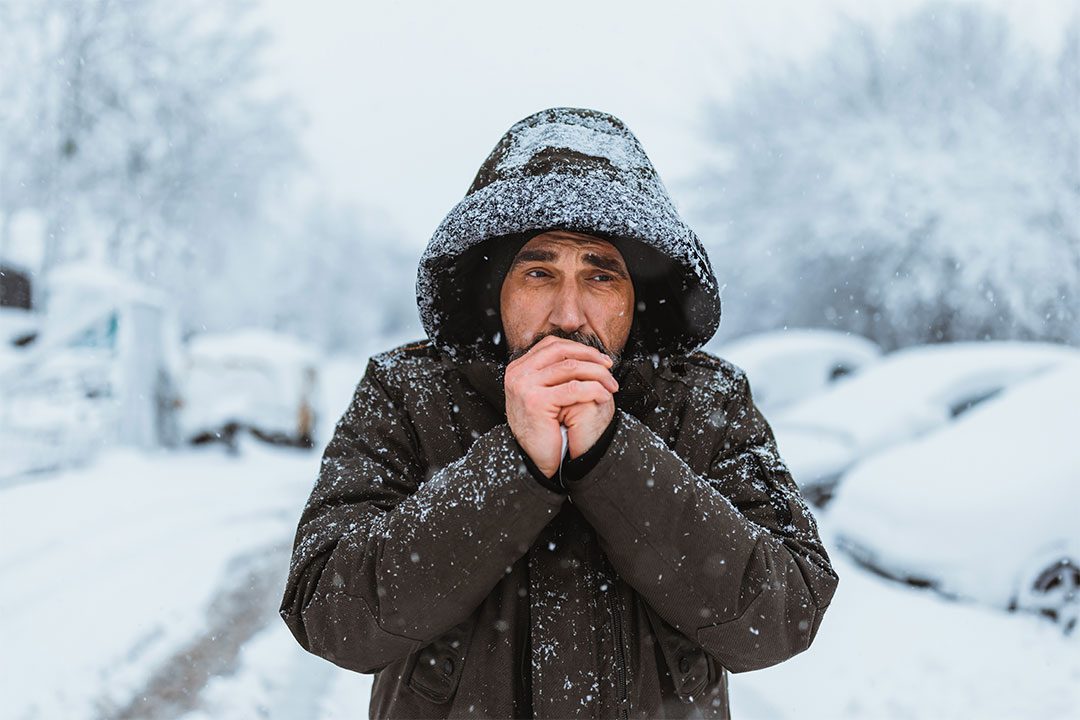Frostbite Can Happen in Minutes
Winter is here. With fresh white snow blanketing the ground and frigid temperatures across the region, beware of frostbite.
Frostbite occurs when you are exposed to freezing temperatures. Its symptoms include:
- Reduced blood flow to hands and feet
- Numbness, tingling or stinging
- Aching
- Bluish or pale, waxy skin
In some cases, frostbite can happen in just minutes, and often causes loss of feeling and color to frostbit areas like the nose, ears, cheeks, chin, fingers or toes. Someone with frostbite may be unaware they have it because frozen tissues become numb. Frostbite can be serious, and may result in permanently damaged tissues, which in some cases leads to amputation.
If you think you may have frostbite, get medical attention as soon as possible. If medical care isn't available, these tips from the Centers for Disease Control and Prevention can help though they are not a substitute for proper medical evaluation.
- Protect your skin from further exposure to extreme temperatures. Protect exposed areas by covering them with winter gear. Warm frostbitten body parts using body heat. For example your armpit could be used to warm frostbitten fingers. But do not rub or massage frostbite as this may cause more damage.
- Move to a warm room as quickly as possible.
- If you think your toes or feet may have frostbite, don't walk on them unless absolutely necessary, as the pressure may increase the damage to your feet.
- Gradually warm up. Warm such that it is comfortable to touch for other parts of the body. Do not use hot water.
- Wrap the rest of your body in a warm blanket. Don't use a heating pad, heat lamp, or the heat of a stove, fireplace, or radiator as frostbitten areas are numb and can easily be burned.
If numbness or pain continues during warming or if blisters develop, seek medical care immediately.
Sometimes hypothermia can accompany frostbite. Hypothermia is a serious medical condition and requires emergency medical care.
Don't let the cold catch you unprepared. Take precautions against extreme cold by preparing your home and car in advance for winter emergencies. Don't spend more time outside in extreme weather conditions than necessary. You can reduce your risk of weather-related health problems.
